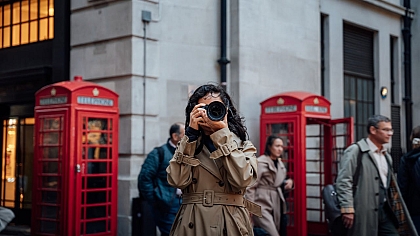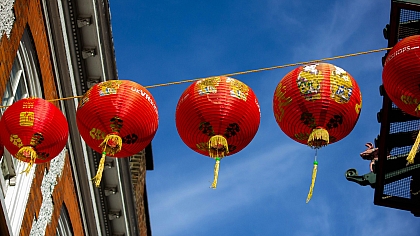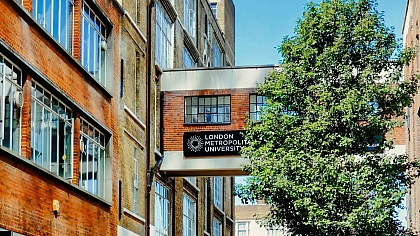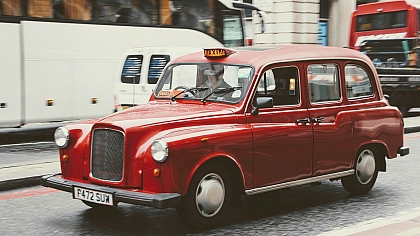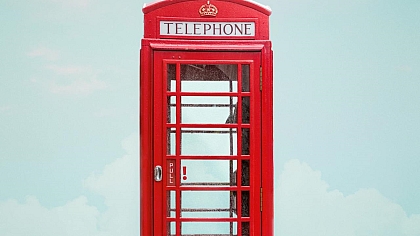
Italy Travel Etiquette: Respectful & Enjoyable Trip Tips
Italy is one of the most popular travel destinations in the world, known for its rich history, delicious food, and beautiful landscapes. To ensure you have a respectful and enjoyable trip, it’s important to be aware of Italian customs, traditions, and etiquette. This guide will help you understand the cultural norms and offer practical tips to enhance your experience while travelling in Italy.
A Taste of Italy in London: Travel Etiquette Tips to Enhance Your Visit
While you may be planning your next trip to Italy, there’s no need to wait until you set foot in Rome or Florence to immerse yourself in Italian culture. London, with its rich multicultural environment, offers plenty of Italian flavours, experiences, and communities to explore. As you tour the vibrant streets of the city, visiting iconic Italian restaurants, markets, and cultural hubs like Eataly or the famous Little Venice area, a sprinkle of Italian travel etiquette can enhance your enjoyment and interactions, even while staying in London.
One of the key etiquette tips for navigating Italian culture, whether you're on the streets of London or in Italy itself, is understanding the value of politeness and respect for tradition. Italians place a high emphasis on greetings, so when entering a café or restaurant—whether in Soho's Italian delis or an authentic trattoria—be sure to greet the staff with a friendly "Buongiorno" or "Buona sera." Similarly, when indulging in a cappuccino at a bustling Italian cafe in Shoreditch or savouring a plate of pasta in a cosy Notting Hill eatery, remember to avoid rushing your meal. Italians appreciate leisurely dining, so take your time to savour the moment, just as you would if you were enjoying La Dolce Vita in Italy itself.
Another tip is to respect the local customs regarding dress and conversation. London’s Italian cultural spots often have a sophisticated, yet relaxed atmosphere, reflecting the Italian way of dressing stylishly without appearing too casual. Whether exploring an Italian art exhibition at The Estorick Collection of Modern Italian Art or attending an Italian film screening in the city, channelling an elegant, understated look will help you feel in tune with the surroundings.
These small etiquette adjustments can make your experience feel authentic, allowing you to enjoy a piece of Italy right in the heart of London while preparing for your future adventures on the continent.
Greetings and Politeness
One of the first things to know about Italian culture is that politeness is very important. Italians greet each other with warmth and respect, and you should do the same. Here are some tips for greeting people in Italy:
- Again, say "Buongiorno" (Good morning) or "Buonasera" (Good evening) when entering a shop, or restaurant, or when meeting someone for the first time.
- If you are introduced to someone of the same gender, a light handshake is appropriate. Among friends, a kiss on both cheeks is common.
- Use formal titles like "Signore" (Mr.) or "Signora" (Mrs.) to show respect, especially with older people.
Remember, making a good first impression is important in Italy, and being polite will help you connect with locals.
Dress Code
Italians take pride in their appearance, and dressing well is a part of their culture. When travelling in Italy, it's best to avoid wearing overly casual clothes, especially in cities or when visiting religious sites. Here are some guidelines for dressing appropriately:
- Avoid beachwear in the city. Shorts and flip-flops should only be worn at the beach or pool, not when visiting churches or museums.
- When visiting churches or religious places, make sure your shoulders and knees are covered. This is especially important when visiting famous sites like the Vatican or St. Peter's Basilica.
- Italians tend to dress smartly, even for casual outings. Opt for stylish but comfortable clothing when exploring the city.
By following these guidelines, you'll not only show respect for Italian customs but also feel more comfortable blending in with the locals.
Dining Etiquette
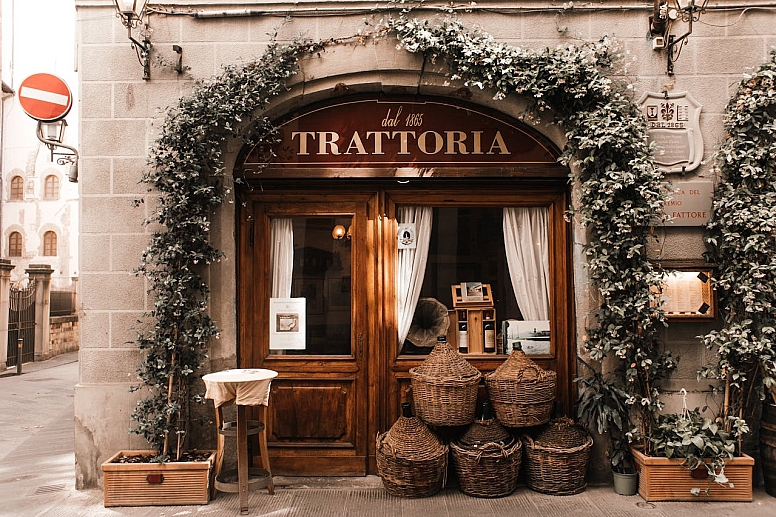
Italian food is famous worldwide, and dining is an essential part of the Italian experience. However, there are specific customs and etiquette rules to keep in mind when eating out in Italy:
- Do not rush your meal. Italians enjoy their meals slowly, and dining is seen as a social activity. It's common to spend a couple of hours at a restaurant.
- When eating pizza, it's typical to use a knife and fork, although some locals might pick it up with their hands.
- Tipping is appreciated but not required. In Italy, service charges are often included in the bill. If you want to leave a tip, rounding up or leaving a small amount is sufficient.
- Don’t ask for modifications to the menu. Italians take pride in their cuisine, and it’s considered rude to ask for changes to traditional dishes.
Dining in Italy is about savouring the experience and enjoying the food, so take your time and respect the traditions.
Public Behaviour
Italians are generally friendly and social people, but there are some behaviours to avoid to ensure you don't unintentionally offend anyone:
- Avoid loud conversations in public places like buses, trains, and restaurants. Italians appreciate quiet and respectful behaviour in public spaces.
- Do not eat while walking. Eating on the go is considered bad manners, especially when walking down the street. Take time to sit at a café or restaurant to enjoy your food.
- Queueing: Italians are not always strict about standing in line. At bus stops or cafes, people may not always form orderly queues, so be patient and polite when waiting your turn.
Transportation Etiquette
Italy offers a variety of public transportation options, including buses, trains, and taxis. Here are some tips for navigating these systems respectfully:
- Validate your ticket. Whether you're on a bus, train, or tram, always validate your ticket in the small machines before boarding. Fines for not validating are hefty.
- Offer your seat to elderly passengers, pregnant women, or those with disabilities. It's a common courtesy in Italy to give up your seat for those who may need it more.
- Taxis: In Italy, taxis are not usually hailed from the street. Instead, you’ll find taxi stands or call one in advance. Make sure the taxi is metered or agree on a fare before starting the trip.
By following these transportation tips, you can avoid confusion and show respect for Italian norms.
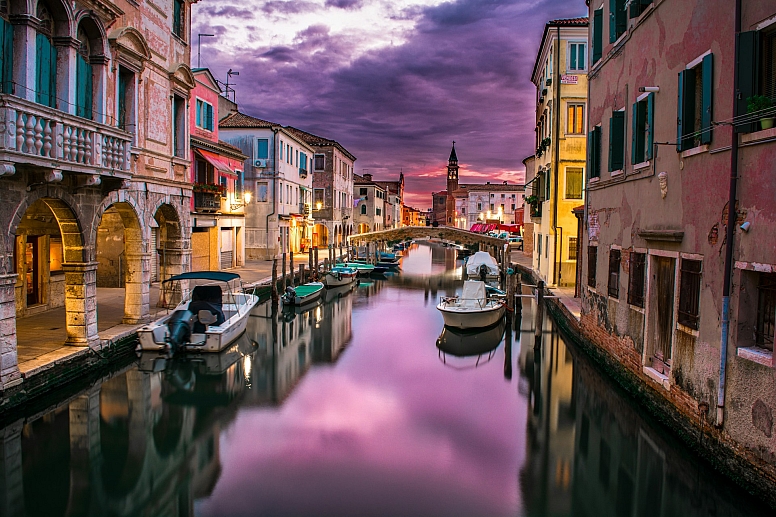
eSIM for Italy
In today’s world, staying connected during your travels is essential. When visiting Italy, having reliable mobile data can make a big difference in navigating the country, translating language, or staying in touch with friends and family. One of the most convenient options for travellers is using an eSIM.
What is an eSIM?
An embedded SIM (eSIM) is a virtual SIM card that allows you to activate a cellular plan without needing a physical SIM card. This means you can switch carriers and activate a plan directly on your smartphone without the hassle of finding a local SIM card in Italy.
Benefits of Using an eSIM in Italy
- Convenience: You don’t need to search for a SIM card shop upon arrival in Italy. You can activate the eSIM remotely before your trip or once you arrive.
- No SIM card swapping: Since the eSIM is digital, you don’t have to remove your original SIM card. This is especially useful if you need to keep your primary phone number active while using local data services.
- Multiple profiles: Some eSIMs allow you to store multiple profiles, so you can switch between different carriers or plans depending on your needs.
Italy Prepaid eSIM
For those planning to stay connected during their trip, an Italy prepaid eSIM is an excellent choice. With this option, you can choose from various prepaid data plans that cater to tourists. Prepaid eSIMs are flexible and allow you to choose how much data you need to avoid expensive roaming charges from your home carrier.
To get an Italy prepaid eSIM, you can purchase one online before your trip or use an app that provides eSIM activation. With a prepaid plan, you can browse, use maps, and stay connected without worrying about high roaming fees.
Tipping Etiquette
While tipping is not as common in Italy as it is in other countries, there are still situations where it’s appreciated. Here are some guidelines on tipping in Italy:
- Restaurants: As mentioned earlier, the bill often includes service charges. If the service charge is not included, a small tip (5-10%) is sufficient.
- Taxis: Tipping taxi drivers is not mandatory, but rounding up to the nearest euro or leaving a small tip for good service is appreciated.
- Hotel staff: If you receive assistance with your luggage or room service, it’s polite to leave a small tip.
Tipping in Italy is more about showing appreciation for excellent service rather than an obligation, so it’s up to your discretion.
Visiting Religious Sites

Italy is home to many famous religious sites, including the Vatican, cathedrals, and churches. When visiting these places, it’s essential to show respect for the customs and traditions:
- Dress modestly. As mentioned earlier, make sure your shoulders and knees are covered when visiting religious sites.
- Keep quiet. These places are often used for prayer and reflection, so speak softly and avoid loud conversations.
- Photography: In many churches and religious sites, photography is either restricted or forbidden. Look for signs or ask permission before taking photos.
Respecting the sacredness of these sites will ensure a positive experience for you and those around you.
Language and Communication
While many Italians speak English, especially in tourist areas, learning a few basic Italian phrases can go a long way in showing respect for the local culture. Here are some useful phrases to know:
- Grazie (Thank you)
- Per favore (Please)
- Scusi (Excuse me)
- Dov'è…? (Where is…?)
- Parla inglese? (Do you speak English?)
Even if your Italian is not perfect, making an effort to speak the language will be appreciated by the locals. It’s a small gesture that shows respect for the culture and can enhance your interactions.
Shopping Etiquette
Italy is famous for its markets, boutiques, and artisan shops. When shopping in Italy, keep the following tips in mind:
- Do not haggle. Unlike some countries where bargaining is common, in Italy, prices are usually fixed, especially in stores and boutiques. It’s not considered to be the norm to try to negotiate prices in most situations.
- Touching items: In some markets, especially food markets, it's considered impolite to touch the produce or goods without asking. Always ask the vendor before handling items.
- Tax-free shopping: Tourists from outside the European Union are eligible for tax refunds on certain purchases. Make sure to ask for a tax-free form when making purchases, especially for higher-priced items.
Travelling to Italy is an unforgettable experience filled with stunning sights, delicious food, and rich cultural traditions. By following the etiquette tips in this guide, you can ensure that your trip is respectful and enjoyable. From greetings and dress codes to dining manners and staying connected with an Italy prepaid eSIM, each aspect of your trip will be enhanced by understanding and respecting the local customs. Enjoy your time in Italy, and take in everything this beautiful country has to offer!
